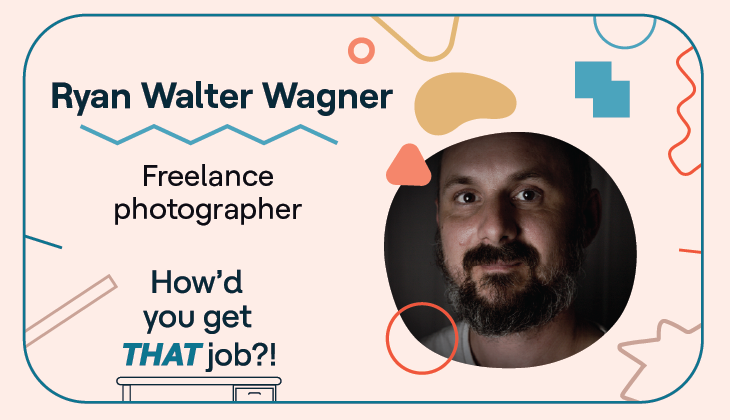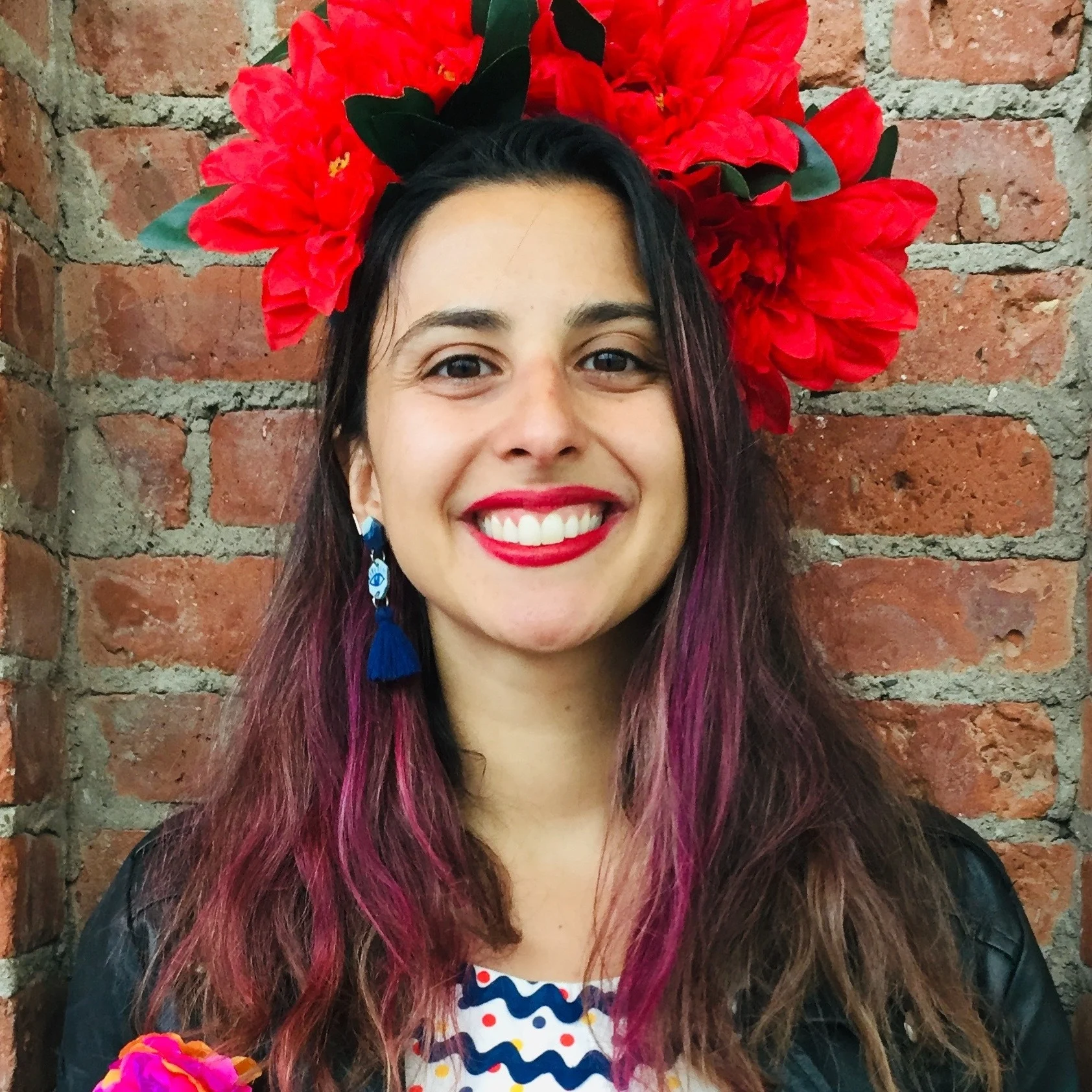Stay in the know
All our latest podcasts delivered right to your inbox.
Ryan Walter Wagner needs both a daily schedule and variety to work with his ADHD. Though he’s tried out many careers — from touring in his punk band to working in a portrait studio — he thinks he’s finally found his home in freelance photography.
Ryan didn’t get diagnosed with ADHD until his 40s, but now so much of his past makes sense to him. His brain just works differently! He documents this, and stories from many others, in his ADHD portrait project. In this week’s episode of How’d You Get THAT Job?!, learn how the perfect job may push you out of your comfort zone at times — and that it’s never too late to learn more about yourself.
Take a listen, and don’t forget to subscribe for more!
Related resources
Episode transcript
Ryan: My favorite photo of me as a child is, you know, I'm probably 4 years old, and my dad had like a little Canon video camera. Looking through the lens and shutting out everything else felt like, you know, that everything just got sucked into that one point and then everything in my mind changed about like, how do you look at things, you know?
Eleni: From the Understood Podcast Network, this is "How'd You Get THAT Job?!," a podcast that explores the unique and often unexpected career paths of people with learning and thinking differences. My name is Eleni Matheou, and I'm a user researcher here at Understood. That means I spent a lot of time thinking about how we find jobs we love that reflect how we learn and who we are. I'll be your host.
While photography can be an escape into someone else's world, looking at others can also help you learn more about yourself. That's part of the reason why my next guest, Ryan Walter Wagner, started his ADHD Portrait Project. Ryan is a freelance photographer, which really works for him because of the flexible schedule and creativity involved.
When he was recently diagnosed with ADHD, it inspired him to start a number of ADHD thinkprojects. Ryan thank you so much for being here.
Ryan: Oh yeah, thanks for having me.
Eleni: So you're a professional freelance photographer, can you tell me a little bit about the kind of photography you do and the projects that you work on?
Ryan: Yeah, I kind of have two folds in my photography career. One being more of a corporate professional working with companies and businesses and doing really slick photography work. My personal work is more based in photojournalism, portraiture, and just telling stories and, you know, helping voices that maybe aren't as loud as they should be. That's the stuff that I'm really passionate about, so I'm always looking for those kinds of stories to help tell.
Eleni: We've had a lot of people in the show who have talked about not enjoying or being able to work in like more of a traditional workplace setting or like a corporate environment. I know that you just mentioned that you have your more personal projects and then more corporate things, but do you want to talk a little bit about how that might relate to you when we talk about, you know, traditional workplace environments?
Ryan: For sure. I mean, as a photographer, when I was coming up and trying to gain experience and stuff, I did get hired by a few portrait studios and I learned lots and those were kind of part-time, so when I quit them, another studio came to me and offered me an amazing job. They basically asked me, what do I want to do for their studio and how much do I want to get paid. So, I mean, it doesn't really get much better than that. But for me, it wasn't great. For me going into the same place, nine to five, it just made me feel lost. It made me feel like I wasn't doing the right thing. And that's the main thing, is like having to go and do the same thing every single day is just too monotonous for me, no matter how much they're paying me or how much freedom they're giving me, just wasn't right for me. When I really sat down and wrote down what do I want out of employment? Always the number one thing that came up for me was freedom. Just the freedom of my time, the ability to control my schedule.
And, I mean, I'm at a point like that in my life now, which when I say I go and do — I photograph for companies in corporate world and events and that sort of thing — because I'm the professional stepping into these worlds I do get to control how I do it. That's taken me twenty years of working jobs and wondering what I'm doing in life? and how am I doing it? Why am I doing it? to get to this point where I'm like now in my forties feeling like: "okay I think I figured out how I work best." Also, a part of it is people telling me what to do is a tough one. And I actually had a conversation recently with a friend where we were talking about working with people and you maybe present to them: "here's this task and here's how we do it." And for me, when that was given to me, I would look at it like: "that's a crappy way to do it, why don't we try and do it this way?" And I'd always think in my head, like "oh I'm being so lazy," like I'm just finding the easiest way to do it. And I always kind of had that little bit of guilt on me, is thinking that I was lazy, even though I was figuring out quicker, efficient, better ways to do these certain things. And it kind of comes into those two roles of telling me where I have to be and telling me what I have to do. It's just, it was crushing. It was crushing to me. And I'm sure nobody really likes that, but I wanted to do something about it because, I mean, if you got to go and make money every day, I need to figure out how to do it in a way that's actually going to be satisfying to me in the end, right? So, I feel like I'm getting pretty close.
Eleni: Oh good. Yeah. I think it's so important to figure out like what works for you personally. That's really interesting in terms of thinking about how, you know, people with thinking and learning differences think differently about things and like problem-solve in that way.
Ryan: Yeah. I mean, the problems — I always felt like I was a good problem solver — but again, this guilt of feeling lazy about being a problem solver is something that kind of came more to light when I was diagnosed with ADHD, as I researched it more and learned more about it I started to tell myself: "well, maybe you're not lazy, you're just good at figuring things out." You know, maybe it wasn't done the right way in the first place, right?
Eleni: Yeah. And that's just about reframing that. And also, you know, in some ways we're taught that if we don't want to follow a process or listen to others, then you know, being a rebel is a bad thing. But actually, we know that there would be no progress or innovation in the world if people didn't question and try new things, right?
Ryan: A hundred percent. Yeah.
Eleni: So you talked a little bit about valuing, well, like I guess, valuing choosing where to work and the kind of work that you're doing. And it sounds like things started to come to light when you got your diagnosis. Do you want to talk a little bit more about maybe how some of your values, how you think it might relate to your ADHD?
Ryan: I feel like my — I think it really just comes down to that aspect of like, I do hear and look at things differently. And, as I mentioned, there was element of guilt that I felt for doing that, but now that I'm starting to discover and learn more about like, oh, well, you know, your brain works a little bit differently and nobody really explored this with you before. So now I have 40 years of like catching up to do almost, right? And so, as I discover that, I realized like it's more interesting to discover a way to do something than it is to be told "this is exactly how you do it," because there's many ways to do anything that you do during the day. So, feeling like there's only one way is, I don't know, that was a trap that I've maybe was sucked into by not understanding myself enough.
Eleni: Yeah. It's interesting because often when I'm talking to ADHD folks, one thing I hear is, you know, definitely this feeling of needing variety. So, when you said, you know, "it just felt really monotonous going into the same place every day," I can see how that might not have been the stimulus that you needed. But then the other side of that, and I guess the balance that a lot of people are seeking, is this idea of needing like some sort of structure and routine. It sounds like, any given week could be really different for you, so is there a way that you find some structure? How does that work?
Ryan: I fully agree. Like that is something that I know I struggle with, and I feel like maybe that is part of the reason why I was able to do well in school. That structure was really good for me. What you're saying about like needing that variety, but also wanting the structure, is like that's a daily struggle for me — daily and weekly struggle — especially since I work for myself.
I've always had a calendar, like before we had the phones in our pockets, you know, I had a little paper calendar that I kept in my bag with me all the time, because I knew I had to write down what I was going to do on what day. If someone asked me to hang out, I have to put it into my calendar or I'm going to forget because it just goes away. It was just a habit that I got into as like a teenager. And it was more of like, in my mind, I really wanted to be an organized person, kind of professional. I was trying to do a lot of things, you know, starting my own businesses and these sorts of things, so I felt like being organized was really important. I had no idea that it was because I had a neurodiverse brain or anything. I just knew that, that worked and it made me feel good to like, have a plan to write down into my book. And now I don't, I mean, if I didn't have my calendar, I would feel a lot more frazzled and a lot more lost, but I also have like my manual list that I have on my desk and I just write down everything that I want to do from big to little things and cross them off. Some of those things will stay on there for four months and then just be gone from the list altogether. But those are two things that I felt like I kind of have been doing most of my life. And then as I discover it's like, part of the reason I'm good at being on time for meetings and that sort of stuff is because I write it all down and I keep it logged in so that I do do the things that I said I was going to.
Eleni: Totally. It's good that you have a system.
Ryan: It's by accident system, because it's harder to get into like these habits, you know, as I, like I say, as I'm discovering more about ADHD and things that can help make it a little bit easier, just navigating through the world's. New habits are so hard to do, like I will do them for a couple of days or a couple of weeks, and then there'll be gone. I'm just fortunate that I thought of that young, because now it's just built into me to go and do that.
Eleni: Before we go into like the photography career path, I kind of want to go back to what you said about, you know, quitting every job you've had. And I often hear in my research that is really difficult for people with ADHD to really spend time doing something that they don't really love and enjoy. It's like quite painful. I'm just wondering, do you have any good stories of jobs you've quit if it relates to ADHD? If you can relate it back, that would be great.
Ryan: Yeah. I mean for me, you know, growing up I had no career path that I was going for. I played music in a punk rock band and to me, that was like "well, that's what I'm going to do, why not?" You know, and so I went hard for that. I put out my own records, I booked my own tours. I did all of that sort of thing and had this job at a toy store, but I wanted to go on this three-month tour with my band. And so, I told them that I was going to quit because who's going to give you three months off of a job? Nobody. And then they insisted that I don't quit and that I come back, — which is interesting to me — and I kind of took them up on that and I went and did what I was passionate about. And when I returned, I moved to a different city, so I went back to the job. I said: "I can't afford to drive to this job anymore, it's not worth it for me." And they transfer you to another job and into another branch of the company. And that was good, but it was still the same thing as like, the reason I wanted to go away for three months is because I didn't care about this job. And so, what I did with that job is, you know, I took my two weeks vacation because I was going to open my own record store. And I had to prep us all up: you know, I got a space, I got inventory, I got, you know, everything ready. I took my two weeks vacation to kind of set it up and open the store. And I just never called them back. I just had my record store now. And that's what I was doing, even though it wasn't nice by just leaving them, I feel like that ending of a job for me is pretty common, just kind of like fading out on it. You know, you come in with gusto and you do really good because it's all new stuff to learn and new people and new procedures, and it's all really exciting. And then a few months down the line, you know how to do everything with your eyes closed in one hand and it's incredibly boring. And that's where I start to get those thoughts of like: "this is a waste of my time, there's nothing here that's stimulating me. Nothing is interesting." And then I just fade out and go onto the next thing, so…
Eleni: Yeah. It's like exciting while you're learning, and then once you feel like you've reached that cap, it's like…
Ryan: And that's what it is. And again, like it's, to me, I'm really just kind of learning these things about myself over the last few years, as I discover what ADHD is and how it affects you. Maybe that's just where my brain needs to go and now I need to figure out why it's going there and what can I do to make it not want to go somewhere else, you know?
Eleni: So you mentioned the band and owning a record store. How did that then evolve to eventually being a full-time photographer?
Ryan: Well, I mean, when I was playing lots of music I got to travel around a lot, so I always had a camera with me. Like, from when I was a kid, we would do Christmas, or we'd go on a vacation, and I was handed the camera or the video camera. And I liked that. I liked kind of composing those images in a lens and looking around. And so, the same thing, you know, when I became an adult and I was sitting in a van all the time, I always had other, at least a point and shoot camera and I was taking lots of photos. And then my best friend, he gave me an SLR, he said: "Hey, I took this from high school and I never use it, but you seem like you're really liking photography. Take this, use this camera." So, I got an SLR and then I started to get more interested in, you know, took some classes and stuff. But really, kind of that's where it started to build, was like being on tour and stopping in Joshua Tree for the day and photographing my band members. And when all of that started to kind of wind up and I wasn't going to be doing that as much anymore, I sat down and thought: "well, I thought I was going to be doing music and I'm not, so what am I going to do?" Like, I know that the creative field is really the only thing that was going to keep me interested. I'm not a very good drawer. I like drawing, I like painting. I like doing those things, but I'm not that good at them. And photography seemed the most accessible to me. I just started taking classes and learning more and building it up and then, eventually had enough confidence in myself. And a lot of that wasn't even so much of like: "Okay Ryan, you're good enough, let's go do this. It was more like: "I hate this job and I'm going to quit it." Okay, I quit the job now, what am I going to do?
Eleni: It's always out of necessity.
Ryan: And then I just told myself, like, what am I going to do? I'm going to start doing headshots because I could make money out of doing headshots. And it just kind of started from there and, finding the thing to me when I think back I always thought, like, I don't want to photograph people. Like, it seems uncomfortable to me, that's like the opposite of what I wanted to do when I first started. The first job I got was at a portrait studio and so I kind of got forced into like, "how do I photograph people? And what's going to help them feel good and make them feel good and make them look good?" And I was kind of just dropped into it. And that's when I discovered that I am pretty good at interacting with strangers and making them feel comfortable. And I learned a lot of skills doing that, but again, it's that thing. It was interesting because I had to figure it out, right? So is this kind of, to me it was — you know to get back, you're playing music and now you're a photographer — but to me it was, this is a pretty smooth transition because I always had a camera with me. My favorite photo of me as a child is, I'm probably 4 years old and my dad had like a little Canon video camera and it was a May Day parade. I think my sister was in the May Queen or something. So, it was a small town in a little parade and I'm on the sidewalk waiting for the parade to come by. And I have my dad's video camera in my hand, and I remember very, very vividly looking through it and twisting the focus and watching my other sister to hold her arm out so I could focus on her arm, fascinated with the way the lens created this entire new world and shut everything else out. And so there I am like doing this little practice with it and my mom took a photo of that and I still had, to me, it's extremely special to me because it really does represent a distinct moment in my life that really changed me a lot because of looking through the lens and shutting out everything else felt like, you know, that everything just got sucked into that one point. And then everything in my mind changed about how do you look at things, you know?
Eleni: You know, one thing that we talk about a lot on this show is like this idea of hyperfocus, it's almost like a visual representation of what hyperfocus could be, you know, it's like the lens. The lens is literally focusing, but for you, that's like when you're able to shut out other distractions.
Ryan: Totally, that's such a great example of it. Because when I talk about looking through the lens as a 4-year-old kid, that's exactly what the hyperfocus feels to me, exactly the same way, as everything else goes away because this is the most important thing right now, which I like being that way. I really like being that way.
Eleni: It's interesting because one thing that the hyperfocus conversation reminds me of is the idea of a flow state and a lot of artists like talk about flow state. And I'm curious whether that comes up for you as well in music. Like, are there similarities or differences in how it feels in your body when you're doing something creative?
Ryan: Hmm...I think that…with like, comparing music and photography it really depends on what I'm photographing. But I do definitely get in the zone. When I am like, music that’s to me that's obvious, like I pick up the guitar a hundred times a day and just play a little lick or, some chords, and maybe I get inspired and play it a little longer, but that's just the thing. That's like part of my de-stressing when I'm working and stuff like that's beside me, you know? Do my thing and then I'll stop, and I'll grab the guitar and plink around for five minutes and then: "Good, okay. I've got that out of my system. Let's get back to work. "
With photography, I definitely 100% get into a zone. And the way that I discovered that was through a partner that I was working with, we were both photographers and we were doing kind of fashion photography, and we had this shoot, an all-day shoot one morning. It was pretty early. And the previous night I had like some really chaotic, personal things happen in my life that were incredibly distracting in my brain. And I knew that, you know, with something like that's going on with me, I'm going to be very preoccupied with it and my mood will change. And I just didn't want that to come into the photo shoot that day.
So I pulled him aside and I said, "hey, this happened to me last night. I'm really struggling with it. And I'm just afraid that it's going to come out in a wrong way in front of clients, in front of models, in front of makeup. And I just want you to know where my head is at today. And it's been a really tough night, I didn't sleep last night." He said: "thanks for letting me know." And we went into the shoot and I was on camera all day. And at the end of the day, he pulled me aside and he said: "hey, if you didn't tell me that this morning, I would've never known anything was up with you. You just killed it. You nailed that job. You did everything like, thank you so much."
And then he said, just kind of aside as I was walking away: "you know, I think that's how you know you're doing the right thing." So, all that being said, is like I feel really fortunate that I did discover something that really helps me with those struggles that I have of just living every day to day — even though it's work and it takes a lot of effort and it puts me into really uncomfortable spots or like really pushes me out of my comfort zone — it's like none of that ever bothers me. It's just part of what I'm doing and what I have to do. So, I guess I'm kind of lucky that way.
Eleni: Yeah, and I think it's pretty amazing considering that you were talking about having challenges with getting bored easily and being easily distracted, but in this instance, you're able to continue to do something day to day and still be enthralled by it. We talked a little bit about music and I'm curious if, you know, aside from, picking up your instruments throughout the day, if music shows up in other ways in your life and projects.
Ryan: Well, I do have a new project and it ties in well with my ADHD is because working from home is very distracting. We have two little cute cats over there that are staring at me right now. So, not a good thing for me. I've discovered, is like I put on a set of headphones, I'm searching for ambient music, something without lyrics and without a beat because those will distract me, any weird chord changes, that'll completely derail me. And so, I've been searching for that kind of music with varied success, nothing that really kind of blew me away. And then, myself, I got some new equipment and I went down to our practice space with a friend and I was kind of messing around with this new amp and all these new sounds and everything.
And it started to inspire me a little bit to — I wanted to make some kind of ambient drone experimental music was, and I was like "oh, this is the music that I've been waiting to have on my headphones to focus to work." So, I took it upon myself to continue to do that all my free time. Over the next few weeks, I would go down there and make a 30-minute drone song. And, I mean, that there's a piece of music that I was able to create for myself, really for myself. Surprisingly had a bunch of opportunities come out of that, but really why I was doing it was so that I had the right focus for myself.
Eleni: Yeah. And it's interesting because I'm sure, you know, you're creating it for yourself but it would help other people with ADHD too. And I'm sure there are others looking for something similar as well.
Ryan: A hundred percent agree. Like, yeah, I did have surprisingly any, I was a bit surprised if anybody approached me just because to me, it's just like hitting one note and letting it play for 30 minutes almost, right? But, I had quite a few people interested in the project and want to contribute to it and that sort of thing. So, it kind of built up a whole different community for me as well, yeah.
Eleni: Cool that like during this ADHD self-discovery phase, you've also like being able to tie it in with other hobbies and interests.
Ryan: For sure. I mean, even just my diagnosis when I was diagnosed with ADHD at the end of it, I just kind of felt like I was let through the exit door and then I was just there by myself. I didn't know what I was going to do. I'm too old for some of the services locally, so, for me, that's a really good way for me to meet and talk to people and without having really any guidance on like what to do now that I've been told I have ADHD other than, you know, be given a prescription.
I thought to myself that it would be interesting to have a portrait project where I can discuss what ADHD is, because lots of people don't know what it is or how it affects people. And so that's what I started to do. I met up with someone that I knew through a friend, and that was my first portrait that I did with someone with ADHD. And that was the first time I ever really spoken to anybody about ADHD and like how I felt about it. Just like having these discussions was incredibly helpful for me. And as it turns out incredibly helpful for a lot of other people, I would follow that portrait project up with an email to the person participating and just say "If you can answer one question for me and you can put it into one word — or you could put it into 10 pages, whatever you feel comfortable with — and the question is: what does ADHD mean to you?" So then, with the portrait that I made of them, I would include their words side by side. And it's just really super organic through people coming and wanting to share that with me. So, I feel really lucky that people do want to share that as well, you know?
Eleni: Yeah, definitely. Storytelling is so powerful and because it's such an invisible thing too, you're literally giving a face to it.
Ryan: Exactly. And the various different types of people as well.
Eleni: So Ryan, if people want to get involved with that project, how would they find out about it?
Ryan: They can find it on my website, which is ryanwalterwagner.com and on the menu, you'll see the ADHD Project and, you know, just ask about it if you want to participate, cool. If you even just want to know more about it, send me a message. I'm super happy to talk about anything, really.
Eleni: Thank you so much for having this conversation with me.
Ryan: Thanks for having me.
Eleni: This has been "How'd You Get THAT Job?!," a part of the Understood Podcast Network. You can listen and subscribe to "How'd You Get THAT Job?!" on Apple, Spotify, or wherever you get your podcasts. And if you like what you heard today, tell someone about it.
"How'd You Get THAT Job?!" is for you. So we want to make sure you're getting what you need. Go to u.org/thatjob to share your thoughts and to find resources from every episode. That's the letter U, as in Understood, dot O R G, slash that job.
Do you have a learning difference and a job you're passionate about? Email us at thatjob@understood.org. If you'd like to tell us how you got THAT job, we'd love to hear from you. As a nonprofit and social impact organization, Understood relies on the help of listeners like you to create podcasts like this one, to reach and support more people in more places. We have an ambitious mission to shape the world for difference, and we welcome you to join us in achieving our goals. Learn more at understood.org/mission.
"How'd You Get THAT Job?!" is produced by Grace Tatter. Briana Berry is our production director. Andrew Lee is our editorial lead. Our theme music is created by Justin D. Wright, who also mixes the show.
For the Understood Podcast Network, Laura Key is our editorial director. Scott Cocchiere is our creative director. And Seth Melnick is our executive producer. And I'm your host, Eleni Matheou. Thanks again for listening.
Host
Eleni Matheou
leads user research for Understood. She helps Understood to center its work on the lived experiences and voices of people who learn and think differently.
Latest episodes
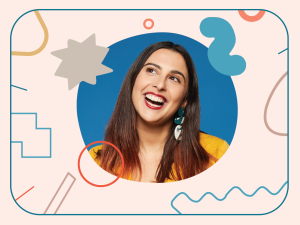
June 28, 2023
In the series finale of How’d You Get THAT Job?!, host Eleni Matheou unpacks what we’ve learned about how people thrive at work.

June 14, 2023
Nathan Friedman is the co-president and chief marketing officer of Understood.org. And he has dyslexia and ADHD. Learn how he got into the C-suite.
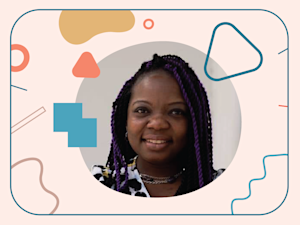
May 31, 2023
Dr. Loucresie Rupert is a child, adolescent, and adult psychiatrist with ADHD. She didn’t have an easy time getting her diagnosis as a Black woman.
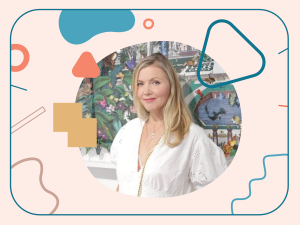
May 17, 2023
Kristjana Williams is a London-based Icelandic artist with dyslexia. She wasn’t diagnosed until she was 25, and now she has her own studio.

May 3, 2023
Aideé Chávez Frescas has ADHD, and is a senior social media manager at Understood. Her posts help end stigma and show others they’re not alone.
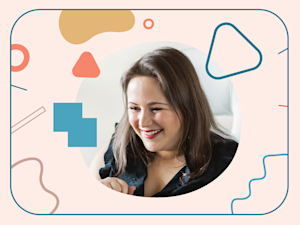
April 19, 2023
Alex Gilbert is a career coach with ADHD and dyslexia. After working in leadership development for years, she started her own coaching business.
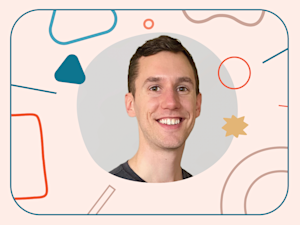
April 5, 2023
Dan Reis was diagnosed with ADHD during the pandemic. Now, he’s made it his mission to explore coping strategies to help him get his work done.
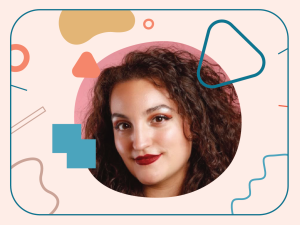
March 22, 2023
Rachel Basoco’s two jobs keep things interesting for her ADHD. She works full time at Fidelity, and part time at 11:11 Media, Paris Hilton’s company.
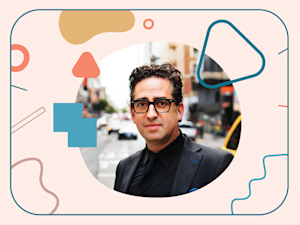
March 8, 2023
Gil Gershoni says that everything he does is dyslexic. He founded the branding firm Gershoni Creative and hosts the Dyslexic Design Thinking podcast.
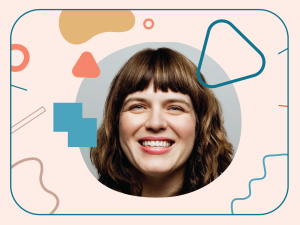
February 22, 2023
Claire Odom is a psychotherapist with ADHD. She’s also a disability inclusion consultant who has advice on navigating the workplace.
